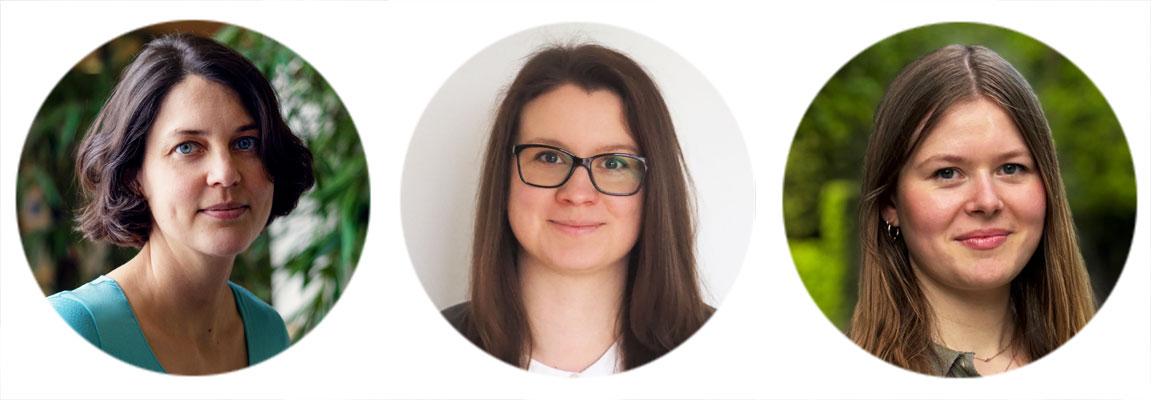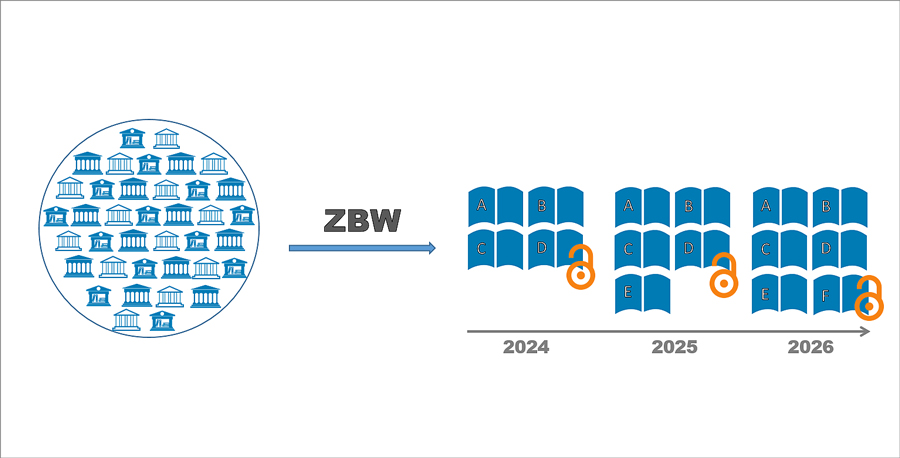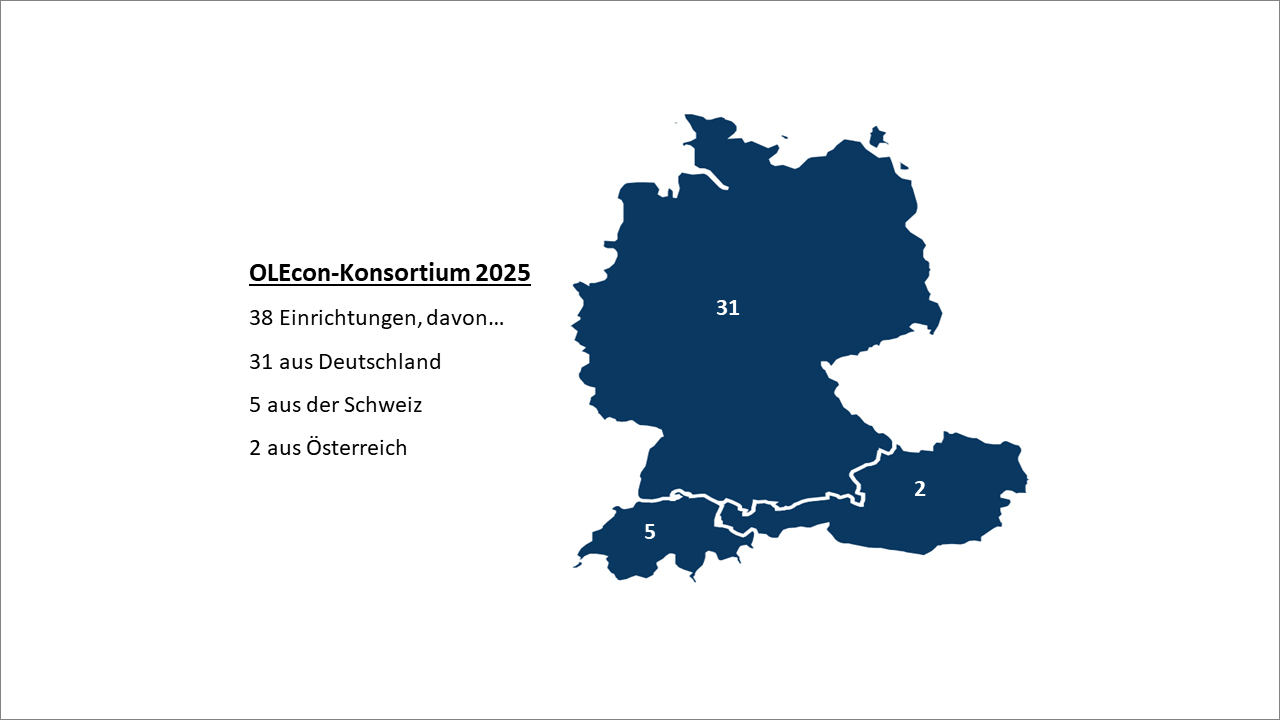
Financing Diamond Open Access for Economics Sciences: How OLEcon Works
OLEcon supports non-commercial Diamond Open Access journals in the field of economics sciences. For sustainable funding, the ZBW is organising a funding consortium. In this blog post, we report on the current progress, the process, and how the consortium is being put on a stable footing in the long term.
by Dr. Juliane Finger (Open Access consultant, ZBW), Ronja Kuhlwilm (Project staff member BMBF project OLEKonsort, ZBW) and Johanna Lau (Student assistant BMBF project OLEKonsort, ZBW)

With the OLEcon funding consortium, Diamond Open Access becomes possible for business studies and economics journals. The OLEcon team assists journal editors in transitioning to scholarly-led Diamond Open Access and in establishing a sustainable funding model.
What is Diamond Open Access?
Diamond Open Access means that neither authors nor readers have to pay fees. Diamond Open Access journals are often non-commercial initiatives from within the scholarly community, meaning they are scholar-led. However, publishing still costs money, for example, for editorial work or journal hosting. Funding models must be developed to cover these costs.
At the Open Library Economics (OLEcon), the ZBW organises the co-funding of Diamond Open Access journals through a consortium — a community of co-funding institutions. Any institution that wants to support Diamond Open Access can participate in the consortium. In most cases, these are academic libraries that wish to support key journals for their researchers. Additionally, some institutions specifically support the Diamond Open Access model as an alternative to profit-driven Open Access models.
What is the Open Library Economics (OLEcon)?
The Open Library Economics (OLEcon) promotes scholar-led Diamond Open Access. This means that academic editors held the title rights and are decision-makers in all aspects of the journal. OLEcon supports economics sciences journals seeking to implement a Diamond Open Access model with co-funding, consulting, and, optionally, a referral to a non-commercial publisher. Articles are published under a CC BY license, so authors retain the rights to their work.
Each year, existing or newly founded journals can apply for OLEcon funding. In 2025, OLEcon is funding six journals in economics sciences: Four of these are co-funded through the consortium, and two journals of the Verein für Socialpolitik (German Economic Association) are co-funded through the Subscribe-to-Open model. All information about funding is available on the OLEcon website.
How does the funding consortium work?
Each year, the ZBW launches a new funding round for the OLEcon journal package — known as pledging. Each institution participating in the co-funding pays a fixed annual contribution for the entire bundle. Fees are tiered in three levels, depending on the size of the institution. The funding consortium consists of libraries, foundations, and other academic institutions and is organised by the ZBW. The ZBW passes on the funds raised through the consortium to the OLEcon journals.

OLEcon consortium by Johanna Lau created with Piktochart CC BY 4.0
In 2025, four OLEcon journals are co-funded through the consortium. For its development, the ZBW receives additional funding from the Federal Ministry of Education and Research´s project “OLEKonsort” (2023–2026). The share of funding from project funds decreases over time, while consortium-based co-funding increases.
How did the first two years of consortium-based co-funding go?
The OLEcon consortium has been co-funding the journal package for two years. It continues to grow: In 2025, 38 institutions from Germany, Austria, and Switzerland are contributing to keeping the OLEcon journals openly accessible via Diamond Open Access.

OLEKonsort_2025 by Johanna Lau created with Piktochart/ CC BY 4.0
In total, 14 new institutions joined the consortium for the funding year 2025. The goal is to ensure long-term Diamond Open Access through a stable consortium.
Measures for stabilizing the consortium
To stabilise the consortium, the ZBW is building a community of co-funders. Over the past two years, the OLEcon team has used various formats and events to engage with this community. These include a quarterly newsletter, online info sessions, and the additional service of providing customised publication lists (for each institution) of OLEcon journals. In early 2025, a virtual community meeting was held, where participants received information about the consortium and the journals they co-fund, and could express their wishes and needs for the future.
In addition to information about the consortium, there is strong interest in exchanging practical experiences around funding (Diamond) Open Access — for example on questions of budgetary law or acquisition models. These needs will be addressed in the course of the project. A community meeting in 2026 is planned to include both presentations and plenty of space for exchange on how to fund Open Access effectively.
This might also interest you:
- Presentation slides „Nachhaltigen Diamond Open Access über gemeinschaftliche Finanzierung absichern: das Beispiel Open Library Economics“ (PDF, German language), “Securing Sustainable Diamond Open Access Through Collaborative Funding: The Example of Open Library Economics”) by Juliane Finger at the Austrian Library Congress 2025
- SeDOA – Diamond Open Access Service Point
- Action Plan Diamond Open Access
- Organising and Financing Diamond Open Access: How can this be achieved in collaboration with others?
- Open Access Days 2024: DEAL, Diamond and beyond
- The Open Access Barcamp 2024: Community, Exchange, and Reflection
- EconStor Survey 2024: High user satisfaction, but “room for improvement” in understanding how it works
Dr Juliane Finger is an Open Access consultant at the ZBW – Leibniz Information Centre for Economics. She is product manager of the Open Library Economics and is leading the project OLEKonsort a project of the Federal Ministry of Education and Research (BMBF) to set up a funding consortium for Diamond Open Access. She can also be found on ORCiD.
Portrait: Juliane Finger©
Ronja Kuhlwilm is a project staff member in the BMBF project OLEKonsort at the ZBW – Leibniz Information Centre for Economics.
Portrait: Ronja Kuhlwilm©
Johanna Lau is a student assistant in the BMBF project OLEKonsort at the ZBW – Leibniz Information Centre for Economics.
Portrait: Johanna Lau©
View Comments

Peter Suber on science in danger: “Host your open and uncensored research in more than one place and preferably more than one country.”
In this interview with Peter Suber, the Senior Advisor on Open Access at Harvard...



